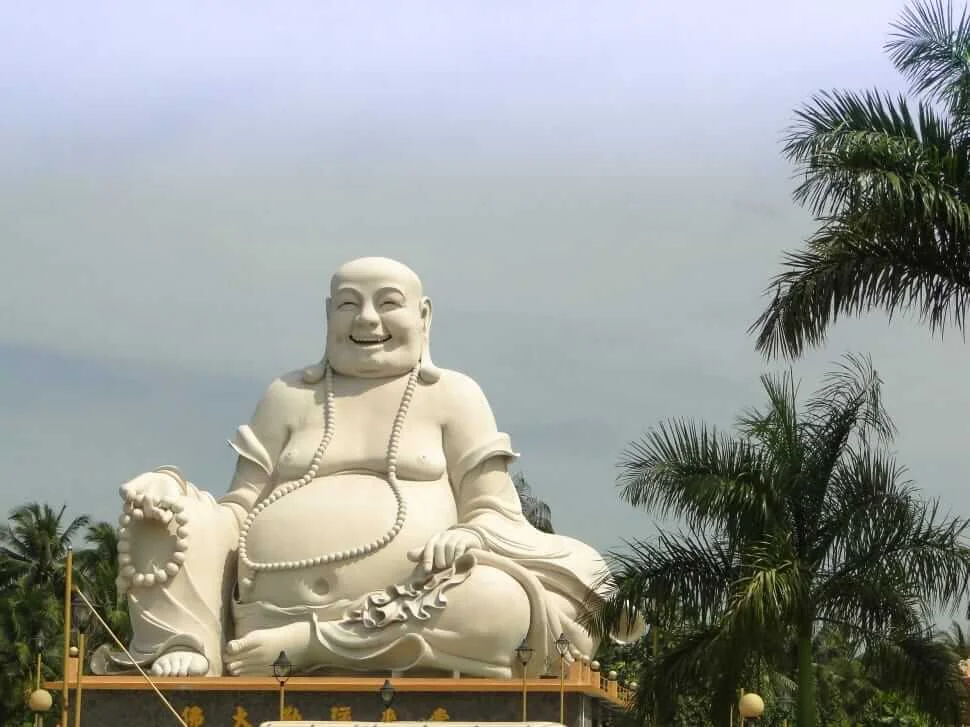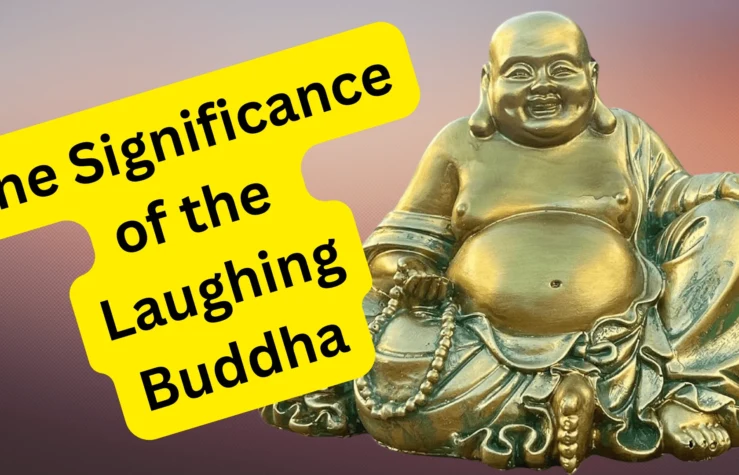The Laughing Buddha, also known as Hotei in Japanese or Budai in Chinese, is one of the most iconic figures in Eastern culture, often seen in homes, temples, and businesses around the world. This jovial figure, with his large belly, cheerful expression, and carefree demeanor, represents more than just a symbol of happiness. He embodies the essence of contentment, abundance, and the power of positive energy. In this blog post, we’ll explore the significance of the Laughing Buddha and why he remains a beloved figure across cultures.
Origins of the Laughing Buddha
It is a representation of a Chinese Zen monk named Budai, who lived over 1,000 years ago. Budai was known for his benevolent nature, always spreading joy and cheer wherever he went. He was a wanderer, carrying a large cloth sack filled with treats, which he would distribute to children and the needy. His big belly, a symbol of abundance and good fortune, and his ever-smiling face, made him a beloved figure among the common people.
In contrast to the traditional image of Buddha, who is often depicted in a meditative pose, the Laughing Buddha’s appearance reflects the idea of living a life of joy, simplicity, and generosity. Over time, his image has become a symbol of happiness, contentment, and prosperity, transcending its origins in Zen Buddhism to become a global icon.
Symbolism of the Laughing Buddha
- Happiness and Joy: It is the epitome of happiness. His infectious smile and carefree demeanor are a reminder to let go of life’s burdens and embrace joy. He encourages people to cultivate a positive attitude, find happiness in simple pleasures, and share that joy with others.
- Prosperity and Abundance: One of the most common reasons people place a Laughing Buddha statue in their homes or businesses is to attract prosperity and abundance. His large belly is believed to symbolize wealth, good fortune, and the fulfillment of desires. Rubbing his belly is said to bring good luck and financial success.
- Contentment: It teaches the value of contentment. His peaceful expression and relaxed posture remind us to be satisfied with what we have, rather than constantly striving for more. This sense of contentment leads to inner peace, reducing stress and anxiety in our lives.
- Generosity: Known for his generous spirit, the Laughing Buddha encourages us to give freely, whether it’s material goods, time, or kindness. His sack, filled with treasures, represents the idea that true wealth comes from giving rather than receiving. By embodying generosity, we open ourselves up to receiving more in return.
- Protection and Blessings: In many cultures, the Laughing Buddha is also seen as a protective figure. He is believed to ward off negative energy, bad luck, and misfortune. Placing his statue in a prominent location is thought to invite blessings and safeguard the home or business.

Different Forms of the Laughing Buddha
The Laughing Buddha is often depicted in various forms, each with its own unique symbolism:
- Laughing Buddha with Children: Symbolizes fertility, happiness, and good fortune in family life.
- Laughing Buddha with a Gold Ingot: Represents wealth and prosperity.
- Laughing Buddha with a Fan: Symbolizes the removal of troubles and the invitation of good fortune.
- Laughing Buddha Sitting on a Dragon Tortoise: Combines the energies of the dragon and the tortoise, symbolizing protection, wealth, and longevity.
Placement and Feng Shui Tips
In Feng Shui, the placement of the Laughing Buddha is important to maximize its positive energy. Here are a few tips:
- At the Entrance: Placing the Laughing Buddha near the entrance of your home or business is believed to attract good luck and positive energy as soon as you walk in.
- In the Living Room: Positioning him in the living room invites happiness and prosperity into your household.
- In the Office: Placing him on your desk or in your office is thought to bring success, wealth, and a stress-free work environment.
Conclusion
It is much more than a decorative piece or a simple good luck charm. He is a symbol of the values that lead to a fulfilling life—joy, contentment, generosity, and the belief in abundance. Whether you are looking to enhance the positive energy in your space or seeking a daily reminder to embrace life’s blessings, the Laughing Buddha serves as an enduring icon of happiness and prosperity.
By welcoming the Laughing Buddha into your life, you invite a spirit of joy and abundance that can transform your environment and outlook, reminding you that true wealth lies not in material possessions, but in the happiness and contentment of the soul.





